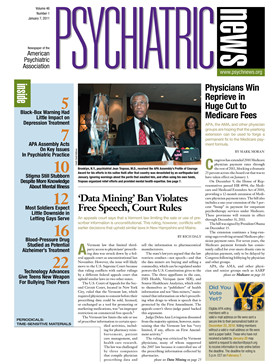In a dramatic and surprising political turnabout, Congress repealed the policy forbidding openly gay people from serving in the military, just two weeks after the measure had appeared to be fatally defeated.
On December 18, the Senate voted 65-31 to end “Don't Ask, Don't Tell (DADT),” the 17-year-old policy banning gay and lesbian service members from serving openly in the military.
It was a dramatic month for opponents and advocates of repeal. In early December the Department of Defense (DoD) released a comprehensive report on the subject of DADT, which concluded that its repeal would have minimal or no effect on military effectiveness. The report included a survey of service members showing that a solid majority believe repeal of DADT would not have a negative impact on soldiers' ability to conduct their military mission.
Among the findings of the survey in the “Report of the Comprehensive Review of the Issues Associated With a Repeal of ‘Don't Ask, Don't Tell’” were the following:
•
When service members were asked how having an openly gay service member in their immediate unit would affect the unit's ability to “work together to get the job done,” 70 percent predicted it would have a positive, mixed, or no effect.
•
When asked if they had ever in their military career worked in a unit with a colleague whom they believed to be gay, 69 percent of service members reported that they had.
•
When asked about the experience of serving in a unit with a colleague whom they believed was gay or lesbian, 92 percent stated that the unit's “ability to work together” was “very good,” “good,” or “neither good nor poor.”
But one week after the release of the report, a vote on a DoD authorization bill that contained a provision repealing DADT fell three votes short of the necessary 60 needed to end debate and advance to the floor of the Senate. At the time, that vote was believed to have effectively killed the DADT repeal effort, but immediately after the vote, several senators—including Joseph Lieberman (I-Conn.), Mark Udall (D-Colo.), and Susan Collins (R-Maine)—began working on a stand-alone bill to repeal DADT before the congressional recess.
On December 16, the House approved the stand-alone repeal measure 250-175. The Senate followed suit two days later.
DoD Secretary Robert Gates said in a statement following the vote by the Senate that he welcomed the action.
“Once this legislation is signed into law by the President, the Department of Defense will immediately proceed with the planning necessary to carry out this change carefully and methodically, but purposefully,” Gates said. “The legislation provides that repeal will take effect once the President, the Secretary of Defense and the Chairman of the Joint Chiefs of Staff certify that implementation of the new policies and regulations written by the Department is consistent with the standards of military readiness, military effectiveness, unit cohesion, and recruiting and retention of the Armed Forces. As I have stated before, I will approach this process deliberately and will make such certification only after careful consultation with the military service chiefs and our combatant commanders, and when I am satisfied that those conditions have been met for all the Services, commands, and units.
“It is therefore important that our men and women in uniform understand that while today's historic vote means that this policy will change, the implementation and certification process will take an additional period of time. In the meantime, the current law and policy will remain in effect.
“. . . With a continued and sustained commitment to core values of leadership, professionalism and respect for all, I am convinced that the U.S. military can successfully accommodate and implement this change, as it has others in history.”
Both Gates and Adm. Michael Mullen, chair of the Joint Chiefs of Staff, had warned against the possibility of judicial action to overturn DADT if Congress failed to act legislatively.
“I believe this is a matter of some urgency because, as we have seen in the past year, the federal courts are increasingly becoming involved in this issue,” Gates told the Senate Armed Services Committee prior to the congressional action on the authorization bill. “Just a few weeks ago, one lower-court ruling forced the department into an abrupt series of changes that were no doubt confusing and distracting to men and women in the ranks. It is only a matter of time before the federal courts are drawn once more into the fray, with the very real possibility that this change would be imposed immediately by judicial fiat—by far the most disruptive and damaging scenario I can imagine, and one of the most hazardous to military morale, readiness, and battlefield performance.”
In communications with Psychiatric News prior to the Senate vote repealing DADT, Philip Bialer, M.D., APA Assembly representative of the Caucus of Lesbian, Gay, and Bisexual Psychiatrists, hailed the DoD report and noted that APA has long had a position statement opposing the exclusion or dismissal from the Armed Forces of any individual on the basis of sexual orientation.
“The overall 70 percent acceptance of gays and lesbians being allowed to serve in the military is very impressive and indicates that [repeal of DADT] can be successfully implemented,” he said.

